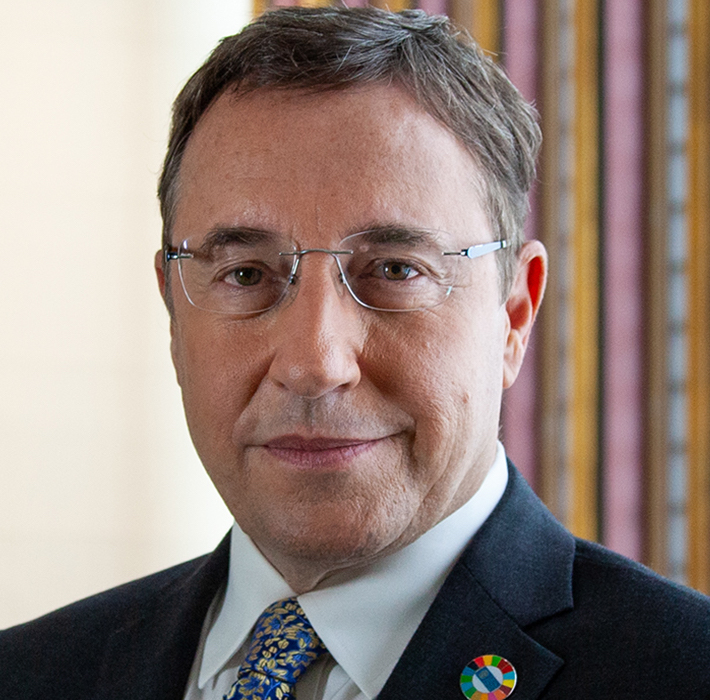






The world has been hit hard by the COVID-19 pandemic.
As the virus spread and countries locked down,
the world changed in a matter of days.
We hit pause.
The consequences of the COVID-19 pandemic can easily lead to a catastrophe.
But we have an opportunity to recover stronger:
a greener global health system and a more sustainable economy with fewer inequalities.

Human beings wield more power over the planet than ever before. In the wake of COVID-19, record-breaking temperatures and spiraling inequality, it is time to use that power to redefine what we mean by progress, where our carbon and consumption footprints are no longer hidden.
— Achim Steiner, Administrator, UNDP
With the emergence of the pandemic, there has been an increase
in the health systems’ impact on human and planetary health.
These include GHG emissions, pollution, plastic and pharmaceutical waste.
This, in turn, contributed to
climate change, chemical contamination, resource depletion, biodiversity loss, air and water pollution.
This is why the United Nations, through the
UN Interagency on Sustainable Procurement in the Health Sector (SPHS),
promotes green health systems that positively impact
the global health care supply chain to achieve
net-zero carbon emissions by 2050.
The COVID-19 pandemic has shown that
we can only be safe if everyone is included and no one is left behind.
Ending the pandemic will take a global effort.
No one is safe, until everyone is safe.

COVID-19 has threatened the lives and livelihoods of everyone on the planet. To respond, we must take several urgent actions. The only way that we'll be able to recover better, together, is by defeating the virus everywhere through universal access to vaccines, diagnostics, and therapeutics.
— Dr. Tedros Adhanom Ghebreyesus, Director-General, WHO
SPHS Members are fully committed to lowering their procurement‘s environmental and social impact to contribute to a more eco-friendly health sector and improve human and environmental health.
The main source of the data is from the UNOPS 2019 Annual Statistical Report on United Nations Procurement, which examines the combined spending on goods and services of 39 United Nations organisations in detail. The Report helps the SPHS Secretariat to analyze the key statistical information about the procurement conducted by UN SPHS member agencies on health commodities and services.







© Photo: UN Women/Fahad Abdullah Kaizer